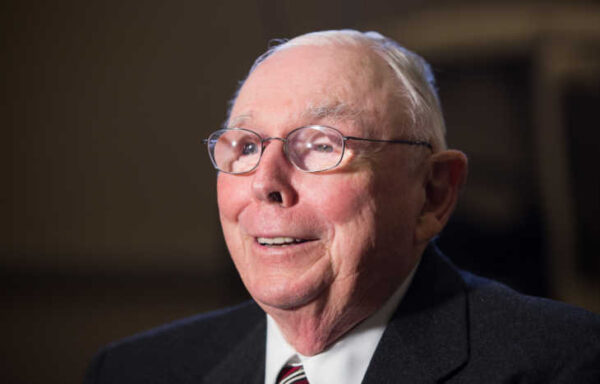The “Early to Rise” Virtue
- Getting up (and getting to work) earlier makes you seem more industrious than your colleagues, while arriving and working late can actually make you look disorganized.
- Today, Mark Ford explains how becoming an early riser can make you more productive and help you build a rich life.
Getting to work early is such a common virtue of successful people that I’m tempted to call it the single most important thing you can do to change your life.
I wasn’t always an early riser. For most of my 20s, if I saw the sun rise, it was before going to bed. And in my 30s, I’d struggle to get into the office by 9 a.m.
I wasn’t afraid of the work. Most days, I’d put in 12 to 14 hours. But since I had gotten accustomed to late hours in college and graduate school, I saw no reason to change my waking and sleeping habits.
“I do my best work after midnight,” I used to say. And for a while, I even believed it.
My conversion happened in my early 40s, after I’d already become financially independent. That being the case, I can’t argue that it’s impossible to become successful unless you get up early. I did it. And plenty of others did it, too. But I can say that the success I’ve had since then has been more dramatic… and has come a lot easier.
At the time of my conversion, I was working about 65 hours per week, beginning each workday at 9 a.m., working until about 8 p.m., and working at least half a day on Saturday and Sunday. (Needless to say, I wasn’t seeing much of my family.)
My business partner at the time was getting to work at 7:30 or 8 a.m. (I can’t be sure, of course, since I was never there to greet him!) and leaving at about 6:30 or 7 p.m. He was working about the same number of hours as I was during the week but didn’t work at all on weekends.
I was jealous of his weekends and promised myself repeatedly that I wouldn’t work weekends either. But when Friday came to a close, I never felt my work had been done. There were always several very important matters needing attention. Therefore, one weekend after the next became filled with catch-up work.
My family didn’t like it. I didn’t like it. But the really frustrating thing was that nobody at work seemed to notice all the extra time I was putting in. In fact, I was getting ribbed about coming in late.
After working especially late one night, I stopped for gas at about 2 o’clock in the morning. As I handed my credit card to the lady in the glass booth, she said, “Man, you look beat!”
“I’ve been working almost 12 hours per day,” I told her. “And half days on weekends.”
She looked at me, unimpressed.
“You talk about it like it’s a virtue,” she said.
“Well, if working long hours isn’t a virtue,” I shot back, “what is?”
“Getting to work first,” she said.
It was bizarre – being lectured about virtue by a gas jockey at 2 a.m. But I knew she was right. For all the extra hours I put in, my partner – who had his weekends free – had cornered the market as far as the Puritan work ethic was concerned. He seemed more virtuous not only to our employees but also, I suddenly realized, to me!
There is something about getting in earlier that seems wiser, nobler, smarter and just plain more industrious than working late. Getting to work earlier says something about being energetic, organized and in control. Staying late leaves the opposite impression: You are diligent but disorganized, earnest but erratic, hardworking but a drudge.
In How to Become CEO: The Rules for Rising to the Top of Any Organization, Jeffrey J. Fox puts it this way:
If you are going to be first in your corporation, start practicing by being first on the job. People who arrive at work late don’t like their jobs – at least that’s what senior management thinks… And don’t stay at the office until 10 o’clock every night. You are sending a signal that you can’t keep up or your personal life is poor.
The lady in the glass booth was right. Getting to work first was better than working until dawn. From that moment on, I resolved to come to work earlier.
And I did. At first, it was difficult and my success was sporadic. But then I came upon a plan that worked. I resolved to set my alarm clock a minute earlier each day. A single minute would feel like nothing, I figured. Yet in the course of two months, I would have moved the start of my day back by an hour.
I used this minute-per-day program to move my at-work time from 9 a.m. to 8:30 a.m. and then to 8 a.m. and then to 7:30 a.m. Nowadays, I typically wake up at 6 a.m. and arrive at my desk (or my workout) at 7 a.m.
“Early to bed and early to rise, makes a man healthy, wealthy and wise,” Ben Franklin advised almost 300 years ago. Taking that path really did make a big difference in my life. And I’m not the only one.
There are several studies showing that successful entrepreneurs and most CEOs typically get to work at least an hour before their employees. Most of the wealthiest people I know get up early.
In fact, this is such a universal trait among successful people that I will now call it the single most important thing you can do.
About Mark Ford
Mark Morgan Ford is a lifelong practitioner of writing, teaching, entrepreneurship, martial arts and philanthropy. He has written more than two dozen books on business, entrepreneurship and wealth building (several of which were New York Times and Wall Street Journal bestsellers). As an entrepreneur, he has been involved in dozens of multimillion-dollar businesses, including one whose revenues exceeded $100 million and another that broke the billion-dollar mark. And as a real estate investor, he has been involved in more than a hundred projects and developments, from single-family homes to apartment buildings, office buildings and resort communities. He shares the lessons learned from his decades as an entrepreneur and investor with readers of Manward Digest.






